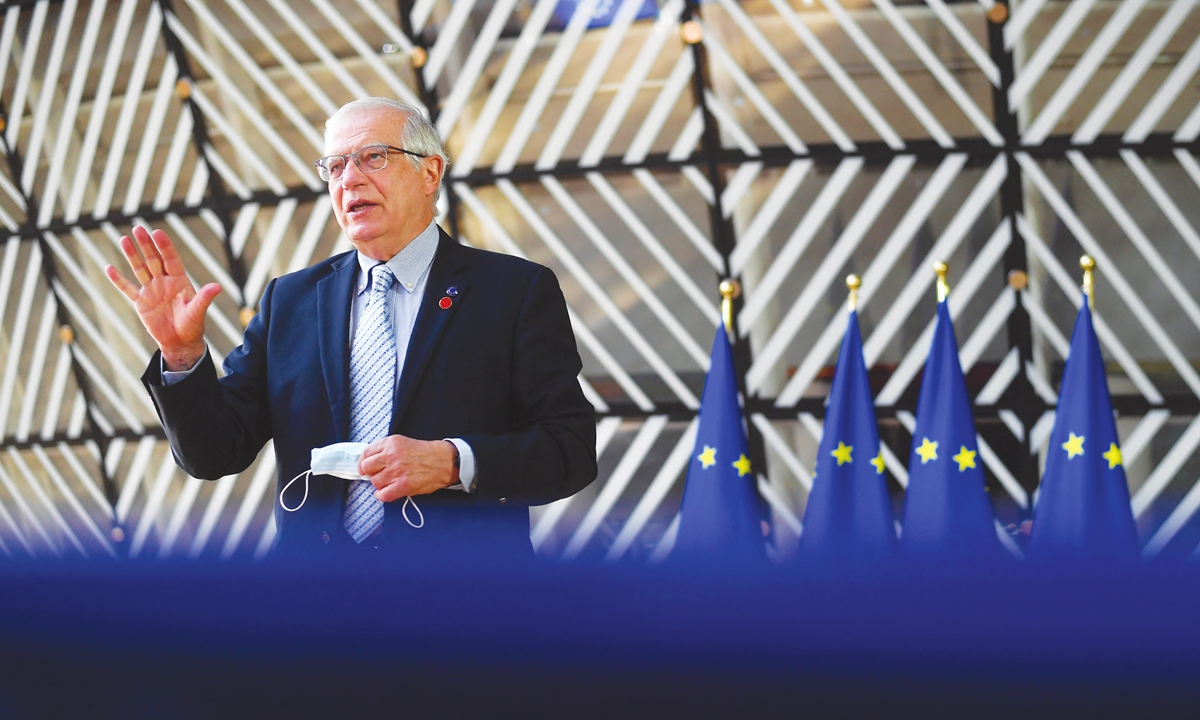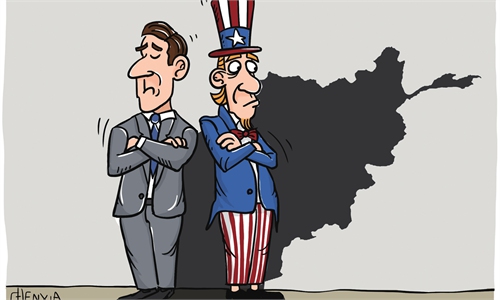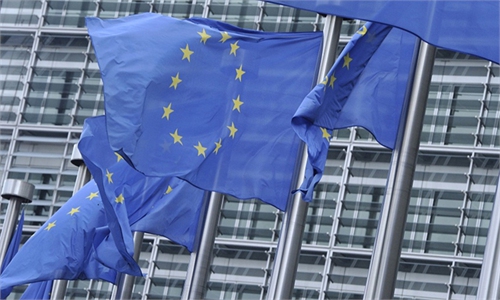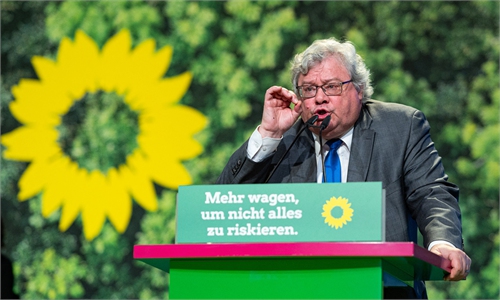
High Representative of the EU for Foreign Affairs Security Policy Josep Borrell. Photo: AFP
Josep Borrell Fontelles, the EU High Representative for Foreign Affairs and Security Policy, recently raised a plan to form a European "initial entry force," consisting of about 5,000 troops. This suggestion has attracted widespread attention. The EU's move is particularly thought-provoking at a time when US President Joe Biden is repeatedly stressing that "America is back."
The immediate cause of the EU's desire to strengthen its common defense and form an "initial entry force" shows the confusion and indecision of European countries over the withdrawal of troops from Afghanistan. This has been a wake-up call to the EU's strategic autonomy.
First, the US' refusal to extend the withdrawal has left European countries scrambling to evacuate their citizens and Afghan staff. Second, the failure of the Afghan operation was not just another "Saigon moment" for the US, but also for the European countries that followed the US into the NATO operation. This has sparked a debate within the EU about the meaning of the operation. Finally, the renewed instability in Afghanistan after the withdrawal will create more refugees. But European countries generally have no desire to accept large number of Afghan refugees after the 2015 refugee crisis. In addition, Europe may also face a serious challenge from the risks of violent terrorist attacks, organized crimes and illicit drug trade exported from Afghanistan.
The EU's plan of an "initial entry force" is rooted in mistrust of the US. During the withdrawal from Afghanistan, Washington made hasty response and did not carry out strategic coordination with its European allies at all. This has made European countries doubt the authenticity of the will and the reliability of the so-called America is back.
The EU's pursuit of strategic autonomy has a long history. Germany's chancellor Angela Merkel previously said that Europe must take their fate into their own hands. Merkel also noted that the EU should also put forward a vision for strategic autonomy to promote the European defense integration.
The EU has also extended its strategic autonomy to economic, industrial and digital fields. But after Biden's victory, Europe's autonomy began to wobble. It wanted to turn to the US for its revival. There was even a popular argument in the bloc that Europe could only be taken seriously by the US if it invested more resources in trans-Atlantic relations by reaching out to Americans.
But the reality is that the Afghanistan problem has shattered the wishful thinking of Europe. It is not certain that Europe has woken up to the truth this time, or that it will "forget the pains."
This is related to the chances of success of the EU's "initial entry force." On the one hand, while the US is happy to see Europe strengthen its defense and share the burden of the redeployment of US strategic forces, the country will not allow Europe to slip out of its grasp. NATO Secretary General Jens Stoltenberg has cautioned that although he welcomes more European efforts on defense, the rapid reaction force can "never replace NATO." On the other hand, the launch and deployment of the "initial entry force" is also subject to internal constraints within the EU. After all, the EU set up a system of battalion-sized battlegroups of 1,500 troops in 2007. But they have never been able to deploy this rapid reaction force due to national divisions. In any case, what's happening in Afghanistan has prompted Europe to re-examine its alliance with America.
The situation in Afghanistan further shows that with increasing challenges around the world, it is imperative for China and the EU to understand each other correctly. The two sides must work together to address these global affairs. Therefore, in the future development of China-EU relations, Europe needs to strengthen its strategic independent actions in military, economic, industrial and other fields. It should not blindly follow the US and become US' pawn to suppress China. Otherwise, it will lead cooperation between China and Europe on the wrong path of institutional confrontation.
Meanwhile, the European "initial entry force" should serve as a support for the EU's contribution to world and regional peace. It should not be abused by Washington as a tool for the EU to promote interventionism in the name of democracy, freedom and human rights. If European countries are willing to lower themselves or choose the wrong path, they will end up repeating the "debacle" of Afghanistan.
The author is director of the German Studies Center at Tongji University. opinion@globaltimes.com.cn



